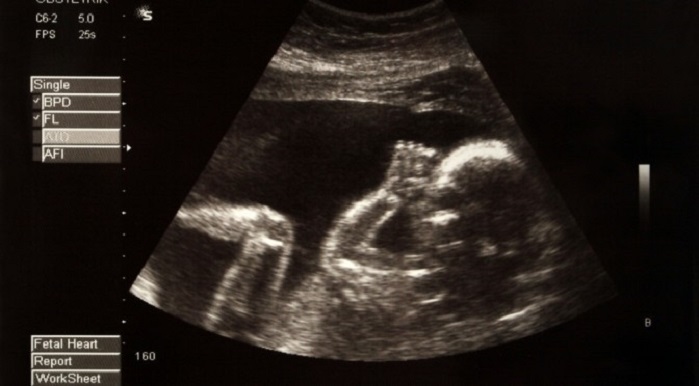Some abortion businesses plan to stop selling the abortion drug mifepristone through the mail after the Fifth Circuit Court of Appeals ruled the Food and Drug Administration was wrong to allow abortions without a doctor’s supervision.
The ruling, which is scheduled to go into effect Saturday, reinstates safety regulations that were in place for decades for the abortion drug mifepristone, including a requirement that it be provided under the direct medical supervision of a licensed medical professional.
Doctors with the Alliance for Hippocratic Medicine, which filed the lawsuit challenging the FDA, said the agency “repeatedly put politics above women’s health” when it approved and later expanded the abortion drug, and the court agreed.
“One thing is clear: the lack of restrictions resulted in many deaths and many more severe or life threatening adverse reactions. Due to FDA’s lax reporting requirements, the exact number is not ascertainable,” U.S. District Judge Matthew Kacsmaryk wrote in his ruling last week.
Now, mail-order abortion businesses may be forced to close. According to the Associated Press, the company Wisp, which sells abortion drugs in nine states, plans to shut down for two weeks unless the U.S. Supreme Court overturns the ruling.
LifeNews is on TruthSocial. Please follow us here.
Eventually, Wisp chief marketing officer Monica Cepak said they plan to re-open and provide another less effective abortion drug, misoprostol. She also told the AP that they are thinking about selling abortion drugs to people before they are pregnant – something even the Biden administration-run FDA has warned is very dangerous.
Here’s more from the report:
Some abortion clinics in Ohio may stop dispensing mifepristone entirely by Saturday, said Jessie Hill, an attorney who represents several independent clinics in the state. The state’s law requires doctors to follow federal label guidelines when prescribing mifepristone, which means clinics will have to follow the court’s order. The order will “make it incredibly inconvenient,” to prescribe mifepristone, she said, because patients will have to make three in-person doctor’s visits and pay more for a higher dosage.
Instead of redirecting their resources to support pregnant mothers and their babies, however, many other abortion businesses are switching to the more dangerous abortion drug, misoprostol, to skirt the ruling.
Reuters reports several already have done so, including Just The Pill. And others plan to switch once the ruling goes into effect.
“We cannot say with certainty what our services will look like next week,” said Christie Pitney, CEO of Forward Midwifery, which sells abortion drugs through the mail. She told Reuters that “ideally” they will be able to continue to sell mifepristone through the mail “but we are prepared to switch to a misoprostol-only regimen if necessary.”
However, their plans also potentially could be illegal. In the initial ruling blocking mifepristone as an elective abortion drug, U.S. District Judge Matthew Kacsmaryk quoted a federal law called the Comstock Act that prohibits mailing any type of abortion drug or device.
Abortion activists already brainstorming other ways to get around the law.
Greer Donley, an associate professor at the University of Pittsburgh Law School, suggested to Reuters that the Biden administration could just say the FDA will not punish abortion providers who prescribe the drug in defiance of the court order.
“Practically speaking, this FDA’s not going to go after anyone, but unless they say that with a clear voice and provide explicit guidance on this issue, there’s going to be a ton of people who aren’t just willing to bet on that,” Donley said.
And one abortion group, Aid Access, which is based in Europe, has vowed to continue selling abortion drugs illegally no matter what the law and courts say.
First approved under the Clinton administration, mifepristone is used to abort unborn babies up to about 10 weeks of pregnancy – although some abortionists use it later. It works by blocking the hormone progesterone and basically starving the unborn baby to death. Typically, abortion groups also prescribe a second drug, misoprostol, to induce labor and expel the baby’s body.
Studies indicate abortion risks are more common than what abortion activists often claim, with about one in 17 women requiring hospital treatment.
On Wednesday, the Fifth Circuit Court of Appeals partially lifted the federal judge’s block on the abortion drug in response to an appeal from the Biden administration. However, the court also banned mail-order abortions that put women’s lives at risk, condemned the FDA for skirting the approval process and restored strict limits on the drug meant to protect women’s health that the Biden administration removed.
The Biden administration is appealing to the U.S. Supreme Court.
Since the overturning of Roe v. Wade, the pro-abortion movement has been pushing abortion drugs even more heavily, and some groups send the drugs to women in pro-life states illegally.
In recent years, abortion drugs have been used for more than half of all abortions in the U.S., killing hundreds of thousands of unborn babies annually, according to the Guttmacher Institute.
Meanwhile, the Biden administration has been trying to expand the life-destroying drugs even further, first by allowing mifepristone to be sold through the mail without any direct medical supervision, and, more recently, by allowing pharmacies like Walgreens, CVS and RiteAid to sell them.
Along with millions of unborn babies’ deaths, the FDA has linked mifepristone to at least 28 women’s deaths and 4,000 serious complications. However, under President Barack Obama, the FDA stopped requiring that non-fatal complications from mifepristone be reported. So the numbers almost certainly are much higher.
A recent study by the Charlotte Lozier Institute found that the rate of abortion-related emergency room visits by women taking the abortion drug increased more than 500 percent between 2002 and 2015.








